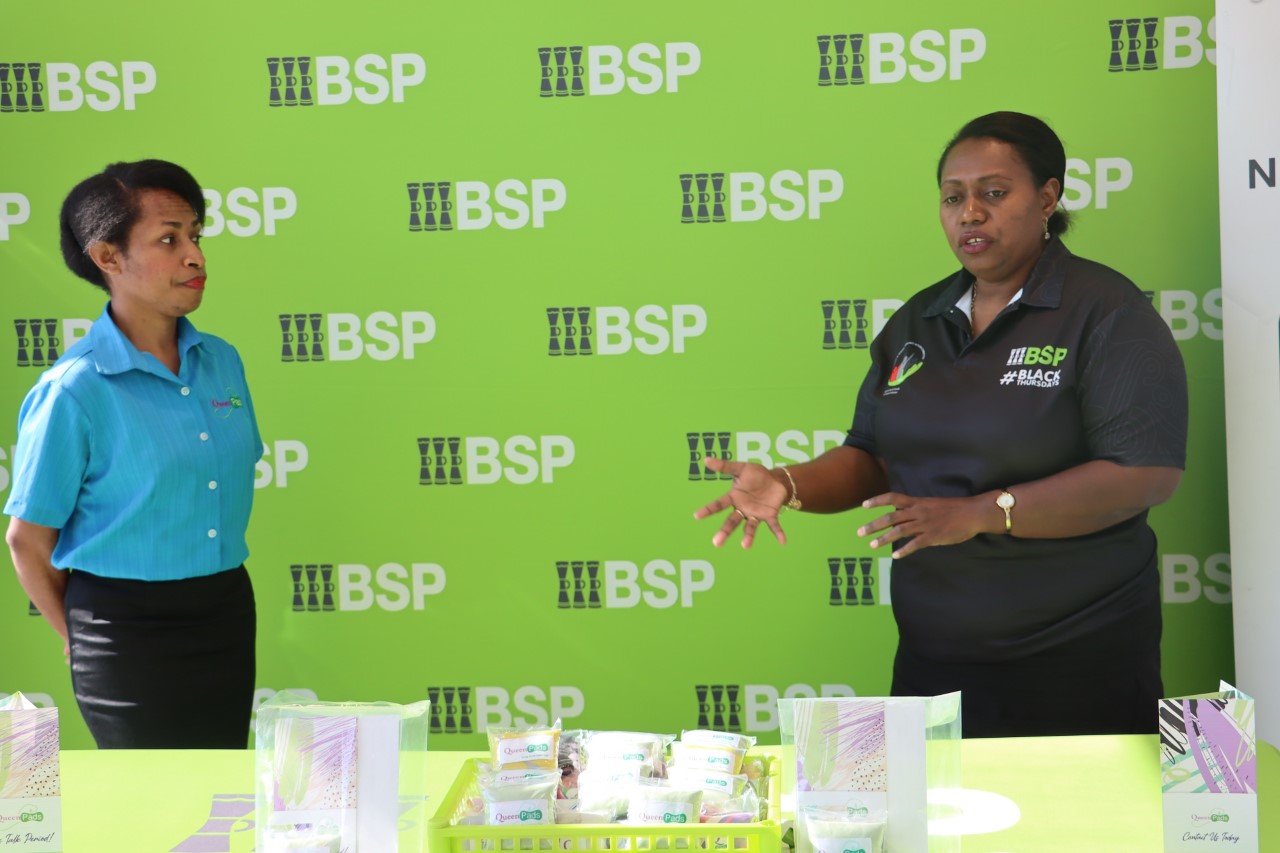Queen Pads PNG is a locally owned SME that supplies locally made menstrual pads product to help young girls and women in rural communities, conducting awareness and supplying the products in the course to minimise health risks.
BSP has supported the local SME with 1000 Queen Pads product purchase, that can help the SME distribute and conduct awareness to encourages menstrual health and hygiene in rural communities.
BSP Corporate sponsorship Manager Amelia Minnopu said, “We are a community oriented bank that believes in people. We also strongly support health, women and girls in communities and invest in where we believe can elevate community levels, especially in rural areas.”

“As the largest private sector employers in the region, BSP employs over 4,000 staff, with women making up 50% of the workforce. Supporting this is one way we hope to contribute positively towards community building and reducing health risks in our societies. We believe in social, economic and political equality’ that amplifies our message of a people’s bank, especially women and children in our communities,” added Ms Minnopu.
Ms Minnopu added that: “These products are made of durable, environmentally friendly and gentle cloths that can last for up to five years and it’s useful for female that can help is many ways. This entailed well with our Go Green campaign in supporting awareness on environmental risks. Moreover, it is an innovative new way to decrease our environmental impact.”
Founder and owner of Queens Pads PNG, Ann- Shirley Korave when discussing the product said, “About 80% of women and girls in rural areas still do not have access to basic hygienic sanitary pads, hence, the support from a bank that is well established in our community can help us reach these population.”
“Menstrual Health and Hygiene is essential to the well-being and empowerment of women and adolescent girls,” added Korave.
BSP and Queen Pads PNG’s partnership is a way forward in supporting women and girls in schools, workplaces and rural and local communities. More importantly, breaking the silence around it in our communities.

